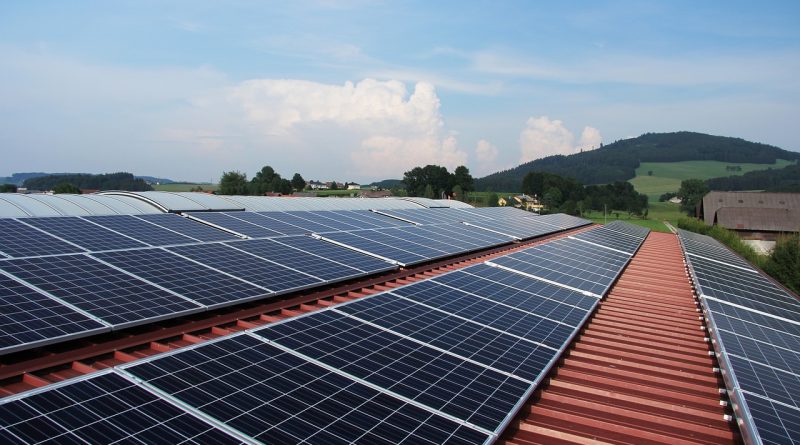Cost of 1 kWh Solar Grid in India: Exploring Expenses
Solar energy has emerged as a viable alternative to traditional sources of electricity, offering a sustainable and environmentally friendly solution. India, with its abundant sunlight, has placed considerable emphasis on harnessing solar power to meet its growing energy demands. As the country moves towards sustainable development, it becomes crucial to understand the cost of solar energy production. In this blog, we will explore the cost of 1 kWh solar grid in India, considering the various factors that influence it.
Table of Contents
Understanding Solar Grid
Before delving into the cost factors, it is important to understand what a solar grid entails. A solar grid consists of photovoltaic (PV) panels that convert sunlight into electricity, along with the required infrastructure for power transmission and distribution. These grids are connected to the conventional power grid, allowing excess electricity to be fed back into the system.
Factors Affecting Solar Grid Cost
Several factors influence the cost of setting up a solar grid in India. Let us examine them in detail:
1. Installation and Equipment Costs
The installation cost of solar panels constitutes a significant portion of the overall expense. This includes the cost of PV panels, inverters, mounting structures, wiring, and other equipment required for the solar grid.
The quality and efficiency of the equipment chosen also play a crucial role in determining the cost. Higher quality equipment generally comes with a higher price tag, but it ensures better performance and durability, resulting in long-term cost savings.
2. Solar Panel Efficiency
The efficiency of solar panels determines the amount of electricity they can generate from a given amount of sunlight. Higher efficiency panels are capable of generating more electricity per square meter, reducing the overall number of panels required. However, these panels often come at a higher cost, which needs to be balanced against the long-term benefits they offer.
3. Government Policies and Incentives
The Indian government has implemented various policies and incentives to promote the adoption of solar energy. These include subsidies, tax benefits, low-interest loans, and power purchase agreements (PPAs) that guarantee a fixed rate for the electricity generated. Such favorable policies can significantly reduce the upfront investment and make solar grids more financially viable.
4. Solar Irradiation Levels
India has diverse geographical regions, each varying in terms of solar irradiation levels. Areas with high solar irradiation receive more sunlight, resulting in higher electricity production potential. Conversely, regions with lower solar irradiation may require a larger number of panels to generate the same amount of electricity, thereby increasing the cost.
5. Scale of the Solar Grid
The size or capacity of the solar grid also affects the cost per kWh. Larger installations generally benefit from economies of scale, making them more cost-effective in terms of electricity generation. However, smaller installations may be more suitable for specific applications or locations with limited available space.
6. Grid-Connected or Off-grid Systems
Grid-connected solar grids are directly connected to the conventional electricity grid, allowing surplus energy to be supplied back to the grid. Off-grid systems are self-sustained and utilize energy storage solutions, such as batteries, to store excess electricity for use during low sunlight periods. Off-grid systems are generally more expensive due to the additional costs associated with energy storage.
Current Cost of 1 kWh Solar Grid in India
The cost of 1 kWh of solar energy in India depends on various factors, making it challenging to provide an exact figure. However, as of 2021, the approximate cost of installing a solar grid with a capacity of 1 kW in India ranges between INR 60,000 to INR 80,000 ($800 to $1,000). This cost includes the installation and equipment costs, but does not consider subsidies or incentives that may further reduce the final cost.
Considering the average capacity factor of solar grids in India, which is around 14% to 19%, the cost per kWh of electricity generated from solar panels is estimated to be in the range of INR 5 to INR 6 ($0.07 to $0.08). However, these figures are subject to regional variations, components used, and other factors mentioned earlier.
Conclusion
Discover the expenses associated with the cost of 1 kWh from a solar grid with SolarClue® as your guide. Understand the calculation and explore the factors influencing these expenses in 2024. Gain insights into the average cost range, enabling you to estimate savings and make informed decisions about transitioning to solar power. Let SolarClue® guide you on optimizing energy consumption and production, reducing the overall cost of 1 kWh and ensuring maximum efficiency. Understand the impact of government incentives on the effective cost, making solar energy more financially viable. Explore the role of technological advancements and innovations in driving down costs, staying updated on the latest trends. Address concerns about reliability and consistency, and educate yourself on the potential long-term savings and ROI. Discover the benefits and considerations of grid-tied systems and let SolarClue® assist you in evaluating quotes for transparency and choosing cost-effective professionals. Join our community for shared experiences and collaborative learning in your solar journey.
Frequently Asked Questions
SolarClue® helps users explore the factors influencing the cost of 1 kWh from a solar grid by detailing the calculation and providing insights into the influencing factors in 2024.
SolarClue® provides information on the average cost range for 1 kWh of solar energy, enabling users to estimate savings and make informed decisions about transitioning to solar power in 2024.
SolarClue® guides users on optimizing their energy consumption and production to reduce the overall cost of 1 kWh from a solar grid, ensuring maximum efficiency in 2024.
SolarClue® assists users in understanding the impact of government incentives and policies on reducing the effective cost of 1 kWh from a solar grid, making solar energy more financially viable in 2024.
SolarClue® provides insights into the role of technological advancements and innovations in driving down the cost of 1 kWh from a solar grid, helping users stay updated on the latest trends in 2024.
SolarClue® addresses concerns about the reliability and consistency of solar grid power, ensuring users are well-informed about the benefits and considerations of relying on solar energy in 2024.
SolarClue® educates users on potential long-term savings and return on investment (ROI) associated with the cost of 1 kWh from a solar grid, emphasizing the economic benefits of investing in solar energy in 2024.
SolarClue® provides information on the role of grid-tied systems in influencing the cost of 1 kWh from a solar grid, guiding users on the benefits and considerations of connecting their solar installations to the grid in 2024.
SolarClue® assists users in evaluating quotes from solar installers, ensuring transparency in pricing, and helping users choose cost-effective and reputable professionals for their solar installations in 2024.
SolarClue® fosters a community where users share their experiences with the cost of 1 kWh from a solar grid, creating a platform for collaborative learning and support in 2024.



